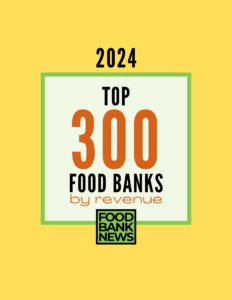GUEST OPINION BY KRISTEN WILD, PRESIDENT AND CEO OF OPERATION FOOD SEARCH — The March of Dimes recently gave Missouri a report card of D- for maternal and infant health. You don’t have to be a former schoolteacher like me to find that alarming. Unfortunately, it’s nothing new. In fact, the Missouri Department of Health and Senior Services has determined that maternal mortality increased 40% between 2020 and 2021. And the mortality rate for Black women is four times higher than for White women. What’s even more distressing is that the majority of these deaths are preventable; the top cause of death was mental health.
According to the American Hospital Association, postpartum depression affects 1 in 8 women, but the risk is 1.6 times higher for Black women. Despite the higher risk, the issue is compounded due to Black women being less likely to receive help due to societal obstacles. Add to that the high rate of poverty and food insecurity among Black women, and you have a prescription for disaster.
At Operation Food Search, we are prescribing food as medicine instead. We are working to improve the maternal quality of care through our Fresh Rx: Nourishing Healthy Starts program. Open to anyone experiencing food insecurity during the first two trimesters, Nourishing Healthy Starts makes the case that good nutrition can impact both physical and mental health. Participants receive weekly food and grocery packages, nutrition education and life skills to support healthy eating, and supportive services that connect participants to resources for pregnancy, birth and infant care.
Together, these provisions prevent many of the health effects and high costs caused by food insecurity during pregnancy. In our 24-month pilot study of 75 women, we found that without access to proper nutrition, anxiety and depression could occur during pregnancy. If left untreated, anxiety and depression can cost around $17,000 for each impacted mother. Within our pilot, we found that depressive symptoms decreased by 14%.
The crisis of maternal health in Missouri has received considerable attention. Earlier this year, the state legislature voted to extend Medicaid coverage for pregnant women and babies from 60 days to 12 months postpartum. But far more needs to be done. On the policy side, the Special Supplemental Nutrition Program for Women, Infants and Children (WIC) is in need of additional funding in order to provide crucial benefits to pregnant women, mothers and children up to age five.
As a hunger relief organization, we are working to prevent many of the health effects and high costs caused by food insecurity during pregnancy. But a problem of this magnitude requires a comprehensive effort. Just as the saying goes, it takes a village to raise a child, so does it take a village to ensure that mothers are physically and mentally healthy enough to birth a healthy child and be present to watch that child grow.
Kristen Wild is President and CEO of Operation Food Search and a member of Food Bank News’ Editorial Advisory Board.
Like what you’re reading?
Support Food Bank News









